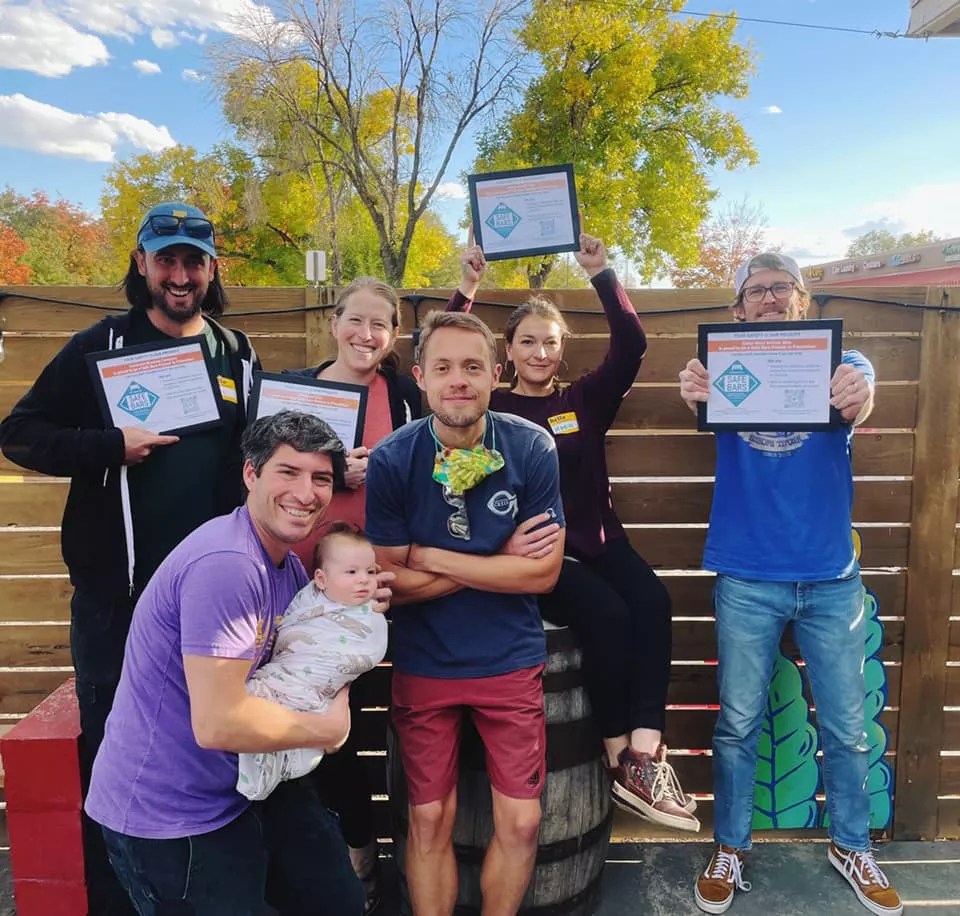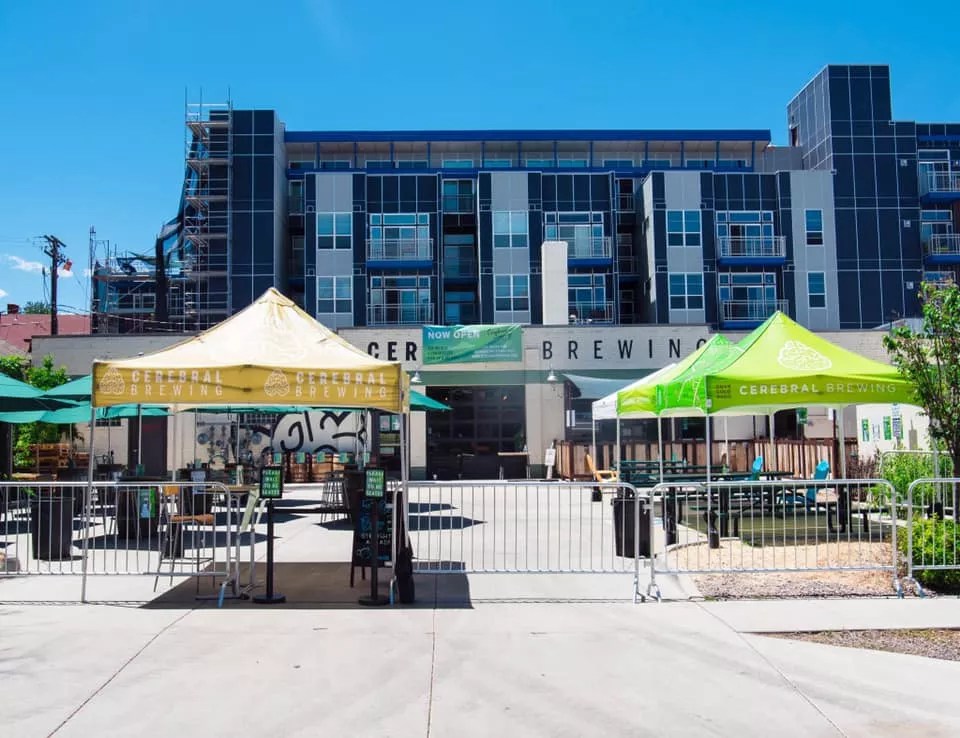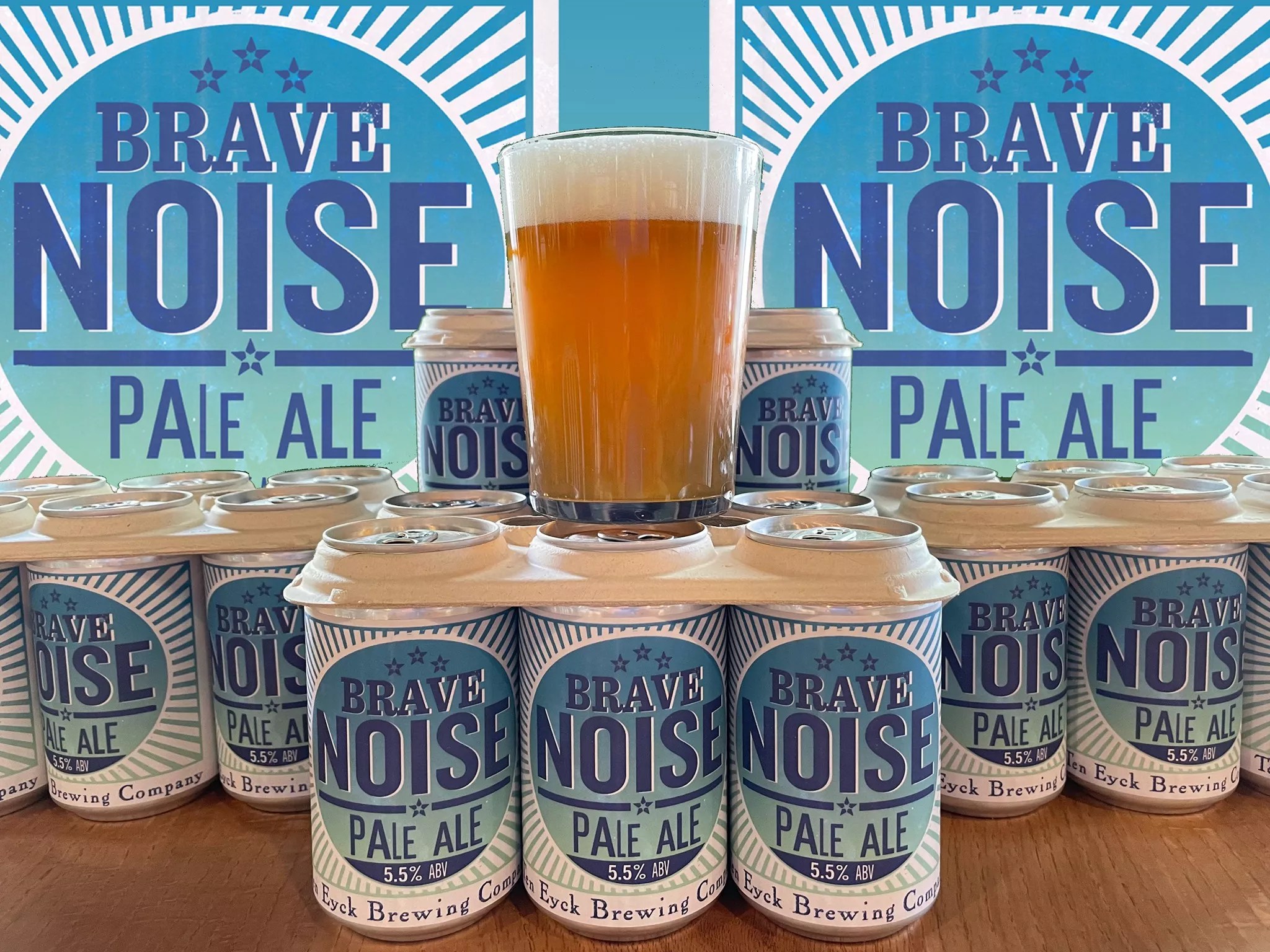
Cellar West

Audio By Carbonatix
The first call came into the Blue Bench in May – not long after a series of Instagram posts detailing hundreds of allegations of sexual harassment, sexism and sexual assault in the beer and brewing business nationwide went viral. More calls would follow, from brewery and bar managers who wanted to put their money where their mouths were when it came to creating safe spaces for patrons and employees by getting staff trained in how to handle a wide range of inappropriate behavior while on the job.
“We are always trying to get bars and breweries to get training, but before last spring, it landed on deaf ears a lot,” says Rebecca Kabacinski, director of prevention and education for the Blue Bench, a 38-year-old Denver nonprofit focused on eliminating sexual violence. But the social media posts, which were curated by a Massachusetts brewer named Brienne Allan (@ratmagnet on Instagram) – and the media attention that followed – “opened the eyes of a lot of folks to the fact that this is happening in their industry.”
Opened eyes for some. Underlined longtime realities for many others.
“For every woman who brought a story forward [to @ratmagnet], there are many more who didn’t,” says Anne Abrahamson, the operations manager at Cerebral Brewing. In her experience, almost every woman in the industry has faced some sort of gender-based discrimination, aggression or violence.

Cerebral Brewing
Abrahamson was the first to call Blue Bench back in May, looking to sign up for a “Safe Bars” class. “We’re lucky that we haven’t had any incidents here, but it doesn’t mean we can’t foster a better environment for our staff and move forward to ensure that we don’t have anything in the future,” she explains.
Since then, more than a dozen other breweries, including Cohesion, Cellar West, Primitive, Ursula, TRVE, Woods Boss, Coal Mine Avenue and Landlocked (see a larger list on Blue Bench’s website) plus over fifteen bars and restaurants have paid for training with Blue Bench. (Kabacinski notes that TRVE Brewing was a supporter of the organization long before the events of 2021.) Safe Bars is a Washington, D.C.-area nonprofit that created a program designed to “help bars, restaurants, breweries, and other alcohol-serving spaces create safe and welcoming cultures for patrons, and safe and respectful workplaces for staff.” Other organizations around the country can get certified to teach the program.
“There is a reckoning in that industry and a larger conversation,” Kabacinski says. “And it has been cool to see them proactively reach out and ask for safe bar training. It spreads through word of mouth.”
Breweries have looked for other ways to make their bars safe since May as well. One of these is by joining Brave Noise, which Allan started to “advocate for safe spaces and inclusive environments by requesting breweries be transparent with their policies and commit to long-term work.” To participate, breweries donate to a relevant charity, establish a code of conduct, and then brew Brave Noise Pale Ale and publish their code of conduct “for staff and customers upon its release.” Another is by signing the P.A.C.T., a code of conduct put forward by a group of organizations nationwide, including Lady Justice Brewing in Aurora.

Ten Eyck Brewing in Maryland is one of many breweries nationwide that have made Brave Noise Pale Ale.
Ten Eyck Brewing
Sexual aggression can come in many forms, according to Safe Bars, from unwanted staring, offensive comments and invading someone’s personal space to touching or groping, verbal abuse and actual assault and rape. So Blue Bench’s two-hour courses teach brewery and bar staff how to develop “active bystander skills,” like learning to recognize sexual aggression, ways to take action to stand up for someone else and how to de-escalate situations involving angry or threatening patrons.
“We want every staff member to have a plan for intervening that is unique to them and their skill set,” Kabacinski says. “We define sexual violence, increase recognition of it and then build on what folks can do and what they can see themselves doing in real life [so that everyone has backup].”
She also points out that alcohol itself doesn’t necessarily cause predatory behavior; rather, the people who want to perpetuate violence against women gravitate toward drinking establishments because they know that their behavior can be overlooked and that their targets may be more vulnerable.
Despite the serious subject, however, Cerebral’s Abrahamson says the trainings, which take place at the bar or brewery, are down to earth and relatable – “not stuffy, and not the classic, cheesy sexual harassment training” that you might find on canned videos in some workplaces.
“The positive thing about [the craft-beer industry] is that people are willing to share ideas and resources about just about everything,” she adds. So now that the issues of sexual harassment and training are more out in the open, “it is more normal to ask about it. It has become part of the conversation.”